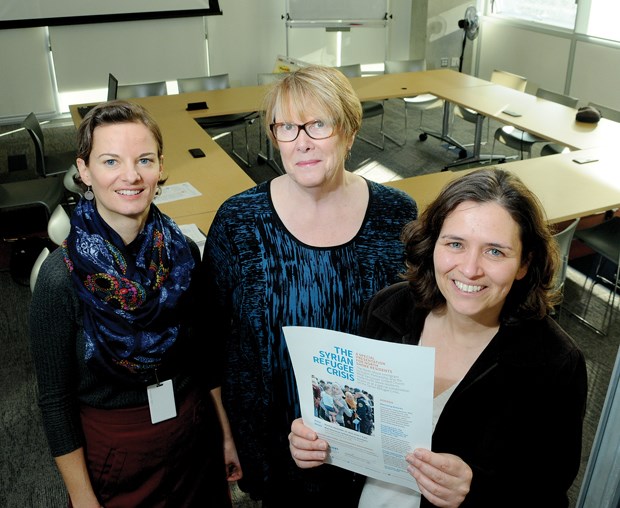What can North Shore residents do to help Syrian refugee families resettling in Metro Vancouver?
“Financial donations and rooms are the immediate need,” said Elizabeth Jones, executive director, North Shore Multicultural Society. “A lot of it is going to depend on housing because they are going to need at least 1,500 housing units in British Columbia that can be rented at welfare rates. That makes the North Shore a tough one.”
Still, Jones said North and West Van residents can open up their homes. “If people come forward and say I have an empty suite in the basement and would be happy to have a family – you know that’s what they are looking for.”
She said residents who have suites can register them at the Immigrant Services Society of B.C. website (issbc.org).
The North Shore Immigrant Inclusion Partnership is a coalition of North Shore community agencies and institutions, including NSMS, that assist new immigrants.
It’s unclear how many Syrian refugees could potentially wind up on the North Shore but residents who want more information on donating funds or offering other services for the refugees can visit NSMS.ca, NSIIP.ca, or email Alison Dudley of the NSIIP at alisond@nsms.ca.
Jones said very few refugees typically settle on the North Shore. “When there starts to be private sponsorship we expect those numbers to go up.”
Along with the church groups who’ve privately sponsored Syrian refugee families, she said other friend and neighbour groups have inquired about sponsorship.
Jones understands the challenges the new refugees will face. “With refugees it’s not a choice – they haven’t chosen to relocate, they’ve had to leave their home with very little, so that’s a challenge. Syrian refugees have been quite traumatized in this process within their country and their journey out of it,” she said.
Then, of course, there’s language issues and regular culture shock. “They’re in a terrible situation right now so I think there’s going to be a lot of relief (when they arrive in Canada).”



